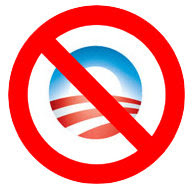The Senate unanimously passed a resolution yesterday apologizing for slavery, making way for a joint congressional resolution and the latest attempt by the federal government to take responsibility for 2 1/2 centuries of slavery.
"You wonder why we didn't do it 100 years ago," Sen. Tom Harkin (D-Iowa), lead sponsor of the resolution, said after the unanimous-consent vote. "It is important to have a collective response to a collective injustice."
The Senate's apology follows a similar apology passed last year by the House. One key difference is that the Senate version explicitly deals with the long-simmering issue of whether slavery descendants are entitled to reparations, saying that the resolution cannot be used in support of claims for restitution. The House is expected to revisit the issue next week to conform its resolution to the Senate version.
Tashington, D.C. - The U.S. Senate resolution apologizing for slavery and segregation will be used as a lobbying tool to acquire reparations payments, say members of the black leadership network Project 21. The group urges the Senate to "move on," saying the apology will do little to heal perceived racial gaps.
On June 18, senators unanimously passed a resolution apologizing for slavery and segregation in the United States. While the resolution was written with the intention that it could not be used to support claims for monetary reparations, reparations activists Randall Robinson told the Washington Post the legislation constitutes a "confession" that will aid the process of acquiring reparations. Harvard professor Charles Ogletree said the resolution should not be a substitute for reparations, saying "That battle will be prolonged."
Jerry Brooks (Auburn, WA): "I'll accept the Senate's apology, but let's move on already. This apology is something that might have been more appropriate long ago, and now it's likely going to be misused by those with a political axe to grind. In particular and despite its intention to the contrary, it is already being used to promote reparations. Not only is this an idea without merit, but an extremely foolish one to be clinging to while our nation is trying to recover from its current economic distress."
Brooks continued, "I also take offense to the ignorant partisan attacks involved in this debate. In trying to infer Republicans are responsible for slavery is downright silly considering that the party came about as part of the movement to abolish slavery."
Jimmie L. Hollis (Millville, NJ): "As an American of African ancestry, I think this apology is ridiculous and useless. It is just another 'feel good' action. If we are to start apologizing for every injustice and wrong done in the past, we will spend the next few decades just apologizing. Let's move on."
Bob Parks (Athol, MA): "Why the need to do this now? Are we attempting to keep the First Lady proud of her country?"
Parks added, "The problem is that, when you apologize, it's important that the recipient knows the reason for the apology and who is giving it. It wasn't the entire Senate whose former party slogan was 'the White Man's Party' or fostered the Ku Klux Klan or resisted black civil rights efforts until it was realized just how the black voting bloc could be used for political advantage. But why the entire Senate is apologizing for evil past doings, once supported by the Democrat Party, is a mystery to me."
Randall Robinson, author of "The Debt: What America Owes to Blacks," said he sees the Senate's apology as a "confession" that should lead to a next step of reparations. "Much is owed, and it is very quantifiable," he said. "It is owed as one would owe for any labor that one has not paid for, and until steps are taken in that direction we haven't accomplished anything."
Cohen said he and Harkin worked closely with the NAACP and other civil rights groups on language that would not endorse or preclude any future claims to reparations. "It will not harm reparations but won't give any standing to it," Cohen said.
Monday, June 22, 2009
Subscribe to:
Post Comments (Atom)

Does the Washington Post, among other on-line publications, know you're cutting and pasting their material into your blog without citing it?
ReplyDelete